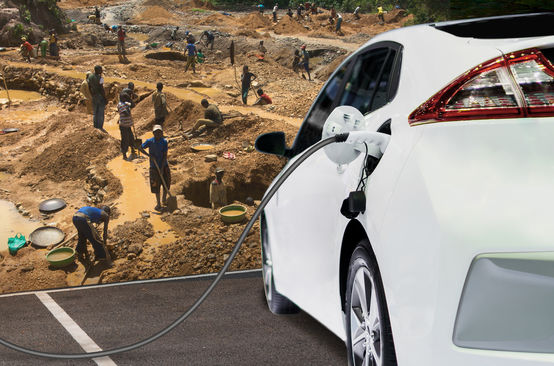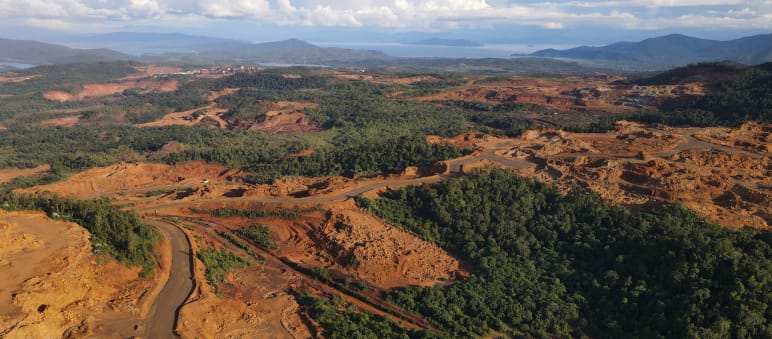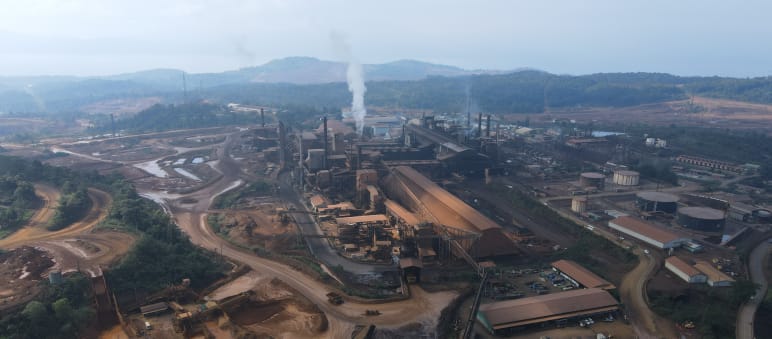From Indonesia to the G20: “Electric vehicles are a false solution to climate change”
Indonesia: Sulawesi Alliance, a group of environmental and human rights organizations working locally, will be delivering a statement to the G20 meeting in Bali about the destructive nature of nickel production in Indonesia for the energy transition. They call on world powers to stop investing in the mining sector, specifically nickel mining. Nickel is one of the components in electric batteries.
In the context of high-level G20 politics, a group of Indonesian organizations have arrived in Bali to deliver a very clear message: "Save the rainforests and the people of Sulawesi: Stop funding and investment in nickel mines and smelters and the dirty power plants that support them in Indonesia. Electric vehicles are a false solution to climate change." In their statement, they lay out the situation facing their island in no uncertain terms: deforestation, pollution worsening with the rains, poor rice harvests, toxic chemicals in drinking water, destruction of mangroves and differential impacts on women.
The G20 (1) is a multilateral forum that brings together leaders of the major economies several times a year to address major geopolitical and economic challenges and other issues. On 15-16 November, it will take place on the iconic island of Bali, Indonesia (2).
The focus is usually on the chosen location, and on the leaders who have traveled there. This week in Bali, Russia's war in Ukraine will also be at the center of the debate. Indonesian President Joko Widodo, however, intends Bali to be seen as a forum for dialogue on many issues.
One of the topics to be discussed will be digital transformation and the energy transition, a theme for which cooperation is being pursued between the various world and regional powers, between more and less developed countries, between partners and rivals, and even with enemies – such is its importance. The Sulawesi Alliance believes that at this G20 meeting, the Indonesian government will offer the nickel resources under Indonesia's tropical forests to the highest bidder from the developed countries. In fact, electric car maker Elon Musk has been invited and will be participating virtually in G20 activities. It is likely he will use his influence to get the Indonesian nickel.
Against this background, Sulawesi Alliance's statement is extremely important, highlighting the serious impact nickel mining is already having on the energy transition. It is a reminder of the importance of preserving the rainforests, the ocean and the lives of farming and fishing families whose livelihoods depend on the integrity of the rainforests. “Investment and funding in Indonesia's nickel industry is accelerating the rate of rainforest destruction, contributing to increasingly severe climate change”, says Amien Muhammad of Sulawesi Alliance.
"The affected communities around the world have a message that is very different than the common narrative that sees the energy transition as our salvation. The case of Indonesia shows that the developed world's hunger for raw materials is so intense that not even the irreplaceable Indonesian rainforests are safe from exploitation. This must be clearly highlighted in the discussions and plans for the massive, worldwide push to mine metals", says Indonesia expert and Rainforest Rescue Director Marianne Klute.
Notes:
(1) The G20 was established in 1999 and consists of Argentina, Australia, Brazil, Canada, China, France, Germany, India, Indonesia, Italy, Japan, Mexico, Russia, Saudi Arabia, South Africa, South Korea, South Korea, Turkey, the United Kingdom, the United States and the European Union.
(2) Indonesia's chairmanship runs from 1 December 2021 to the end of 2022.
This page is available in the following languages:

Electric vehicles are stealth rainforest killers!
Electric vehicles are stealth rainforest killers: the production of "clean" electric cars takes vast amounts of raw materials that are often mined in rainforest areas.

Your donation for the rainforest
Support Rainforest Rescue with a donation – with your help, we actively fight for the protection of the rainforest. Together, we can achieve even more!

